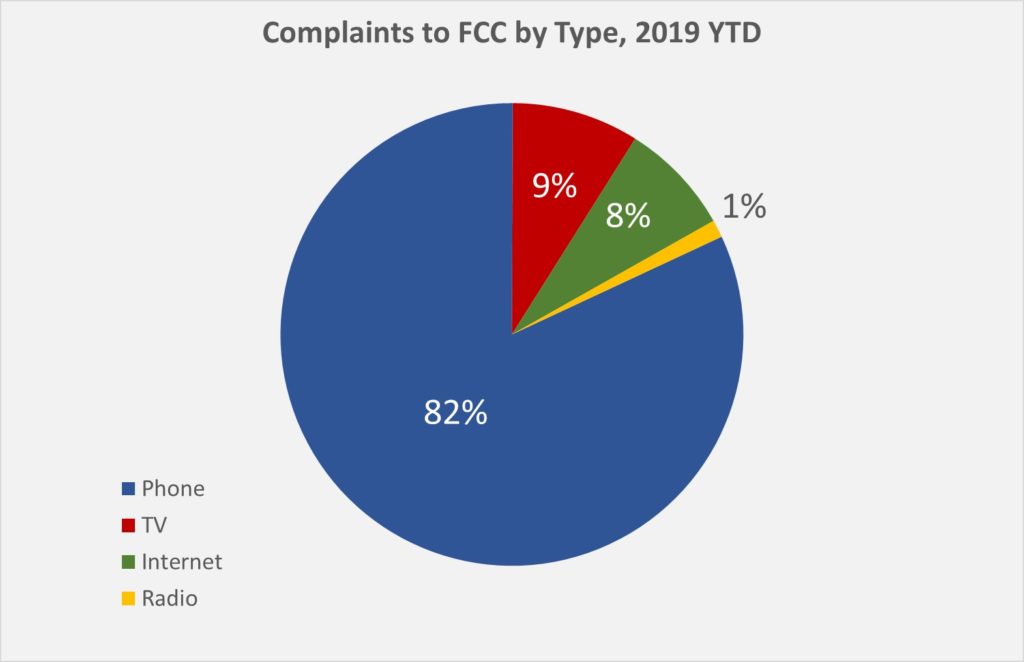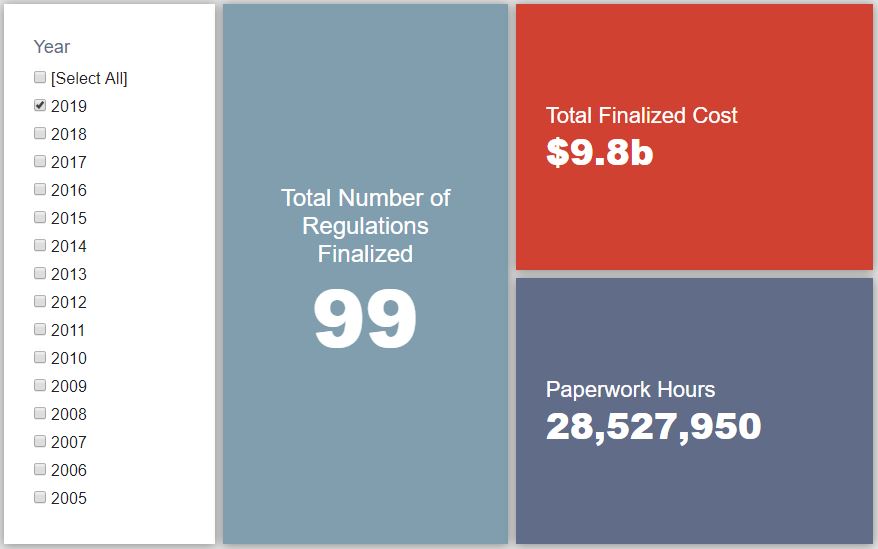Week in Regulation
June 10, 2019
June Starts Off in the Cost Column
After a week in which there were no final rules with measurable economic effects, the first week of June brought a handful of regulations that affect the regulatory budget under Executive Order (EO) 13,771. The overall result, however, was a net-cost week. A Veterans Affairs (VA) rule implementing a veteran health care reform law was the primary reason for the increase in costs. Across all proposed and final rules, agencies published $2.1 billion in total net costs and added 3 million hours of paperwork.
REGULATORY TOPLINES
- New Proposed Rules: 41
- New Final Rules: 56
- 2019 Total Pages: 26,684
- 2019 Final Rule Costs: $9.8 Billion
- 2019 Proposed Rule Costs: $5.3 Billion
TRACKING THE REGULATORY BUDGET
The most notable rulemaking with implications for the fiscal year (FY) 2019 regulatory budget was the VA rule regarding the “Veterans Community Care Program.” The regulation implements parts of the “VA Maintaining Internal Systems and Strengthening Integrated Outside Networks (MISSION) Act of 2018.” Its primary focus is establishing the Veterans Community Care Program to replace the Veterans Choice Program. VA estimates that the administrative costs of this transition add up to roughly $2.2 billion over five years.
The most notable deregulatory action of the week comes from the Coast Guard. This rule finalizes “Amendments to the Marine Radar Observer Refresher Training Regulations.” The rulemaking primarily focuses on streamlining the requirements certain mariners face in receiving the proper credentials. The agency estimates that this could save affected mariners nearly $68 million over a 10-year period. The Department of Homeland Security – which the Coast Guard falls under – now has more than $620 million in total net savings for FY 2019. Its goal for the year is to merely add $0 in net costs.
So far in FY 2019 (which began on October 1, 2018), there have been 50 deregulatory actions (per the rubric created by EO 13,771 and the administration’s subsequent guidance document) against 25 rules that increase costs and fall under the EO’s reach. Combined, these actions yield quantified net costs of roughly $10.8 billion. This total, however, includes the caveat regarding the baseline in the Department of Agriculture’s “National Bioengineered Food Disclosure Standard.” If one considers that rule to be deregulatory, the administration-wide net total is approximately $4.1 billion in net costs. The administration’s cumulative savings goal for FY 2019 is approximately $18 billion.
THIS WEEK’S REGULATORY PICTURE
This week, we look at the Federal Communication Commission’s (FCC) move to further limit robocalls.

The chart above shows the percent of complaints by type submitted to the FCC from January 1-June 6, 2019, recreated according to agency year-to-date data. (NOTE: the chart above omits three categories of complaint that did not affect percentages.) More than 100,000 of all complaints received so far this year are phone related – including unwanted calls from telemarketers and scammers.
To help address these complaints, this week the FCC unanimously approved a Declaratory Ruling that allows phone carriers to block calls that its analytics indicate are unwanted by default, if it informs its customers and allows them to opt out of the blocking. The ruling also allows carriers to offer customers the ability to block any caller not in the customer’s contact list on an opt-in basis.
As AAF’s Will Rinehart noted this week, the FCC action is just one government effort aimed at stopping unwanted robocalls. The Federal Trade Commission recently acted against four large robocall operations. In addition, Congress is considering legislation that would further increase the ability of the government to limit such calls.
TOTAL BURDENS
Since January 1, the federal government has published $15.1 billion in net costs (with $9.8 billion in finalized costs) and 30.9 million hours of net paperwork burden increases (with 28.5 million coming from final rules). Click here for the latest Reg Rodeo findings.












